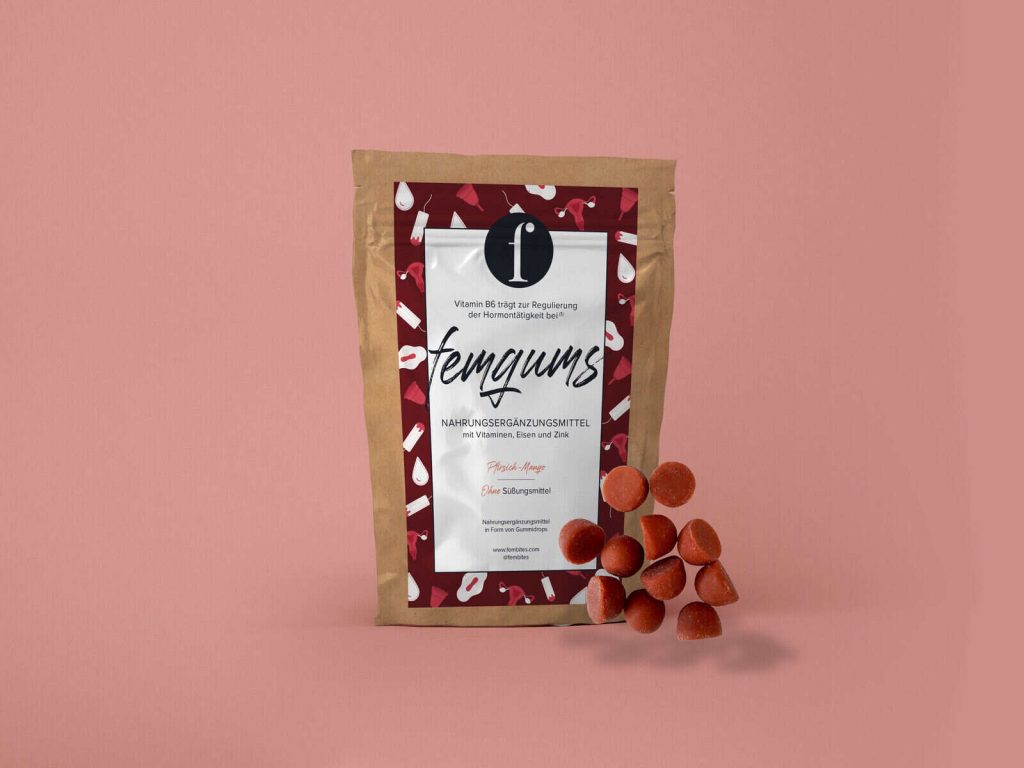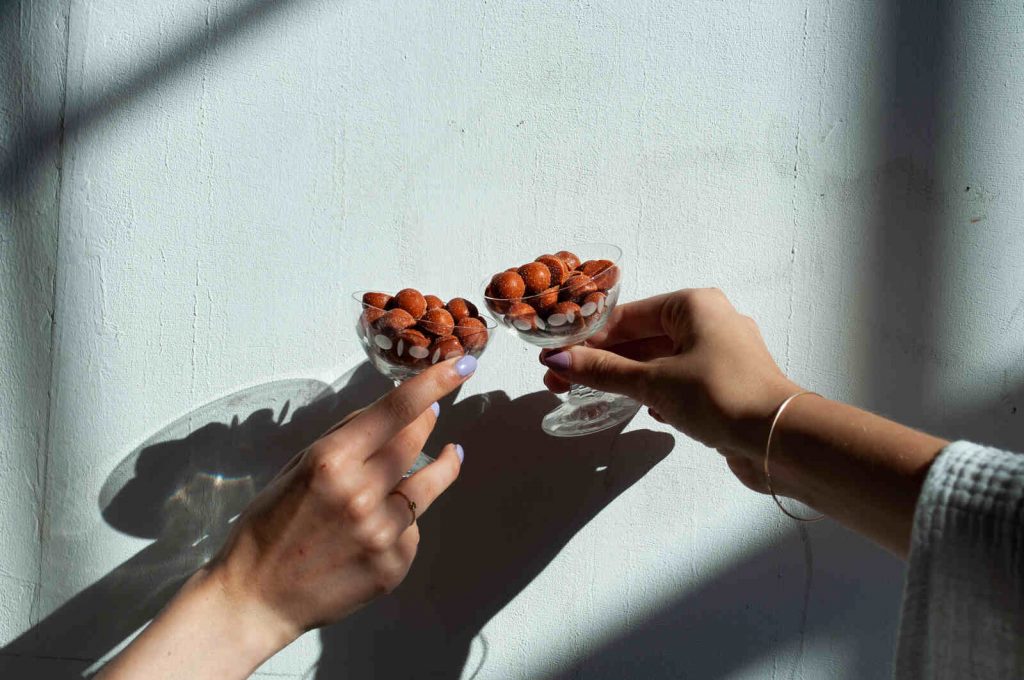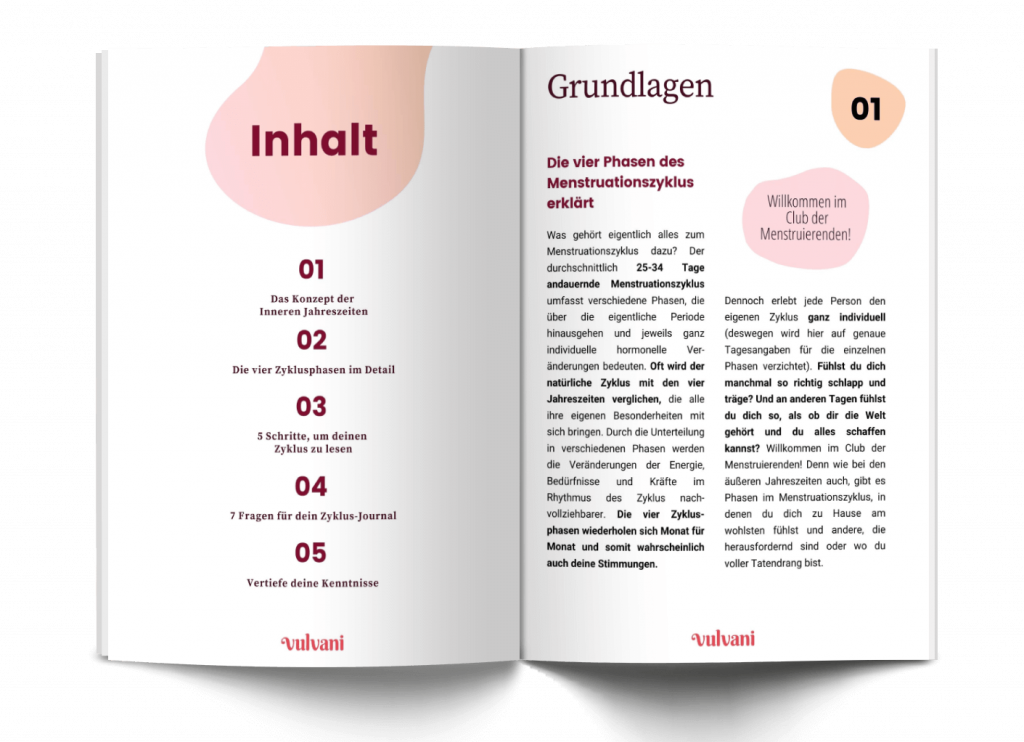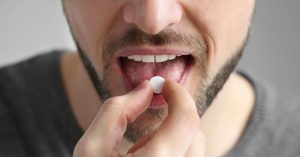
Discovering your menstruation as a spiritual practice
Yasmine understands her menstruation as a spiritual practice and shares in this interview how she is connecting more with her own body through cycle awareness.
Do you suffer from mood swings, nausea, or water retention right before the days of your menstruation? Then it is not unlikely that you suffer from premenstrual syndrome (PMS). But what actually is PMS, what are PMS symptoms and how can we alleviate them? Angelica from fembites answers these and many other questions for us. She also explains which foods are good for us and which are less so, and how fembites’ products can relieve PMS symptoms:
Sure. The people behind fembites, are Jana and I, Angelica. We raise awareness about the different needs of the menstruating body and want to close the Gender Data Gap of nutrition. Through proper nutrition, we can help alleviate hormonal imbalances and the resulting symptoms and syndromes such as PMS in a sustainable way. These include: Mood swings, abdominal pain, headaches, hormonal acne, hair loss, immune system weakness, brittle fingernails, breast tenderness, and more. fembites stands for a transparent brand of innovative snack supplements for menstruating hormonal health. All ingredients are based on the latest scientific findings and have been selected in consultation with gynaecologists and nutritionists. Best of all, unlike conventional supplements, fembites completely eliminates gelatine, mythyl cellulose, synthetic nutrients, refined sugars, and other additives. All ingredients are 100% natural, vegan/veggie and of the highest BIO quality.
We founded fembites in 2021 and our first product “femchoc” was launched in June 2021. It was immediately awarded as the most innovative product by Trend One.


PMS symptoms usually occur right after ovulation and right before menstruation (four to 14 days). It is estimated that 85 percent of menstruating people suffer from PMS (unreported cases excluded). PMDS is less common: it is estimated that only two to ten percent of women of reproductive age are affected by PMDS. The percentage of trans and non-binary people who also practice with PMDS is unclear. While PMS symptoms can put a damper on your day, most people continue to participate in their daily activities without interruption. PMDS, on the other hand, can prevent you from doing so, as physical and psychological symptoms can have a massive impact on daily life. There is also talk of suicidal cases here.
PMS can include up to 80 different symptoms. These PMS symptoms are also divided into physical and psychological symptoms.
Physical PMS symptoms may include, for example:
Psychological PMS symptoms may include the following:


So far, it is known that especially in the luteal phase (about ten to 14 days after ovulation), metabolism accelerates and cortisol levels are higher during the resting phase. Therefore, menstruating people should eat more calories every day to keep blood sugar levels stable, which helps to balance insulin levels – an important hormone that strongly influences the degree of PMS. Menstruating people should definitely abstain from:
In all fembites products, we have carefully compiled the most important nutrients that the menstruating body needs to optimally support its cycle and to help the body feel energized, calm, focused and pain-free during each phase of its cycle. femgums, for example, independently and flexibly covers the needs of each phase to reduce PMS and period discomfort in a timely manner. We only work with ingredients based on the latest scientific studies, such as vitamin B6, which has been shown to help regulate hormonal activity and is often used to treat PMS.

On the one hand, it increases serotonin and dopamine levels, on the other hand, it influences prostaglandin levels (corpus luteum hormone after ovulation) which improve the symptoms of premenstrual syndrome. Vitamin B6 is also important in the breakdown and metabolism of oestrogen in the body. Since oestrogen is a significant factor in both the development of menstrual cramps and PMS, as well as conditions such as endometriosis, adenomyosis, and fibroids, it is important that oestrogen is properly degraded so that the excess presence in the body is lowered.

Raspberries and berries in general are great superfoods packed with antioxidants in my opinion. Raspberry leaves also have a lot of magnesium, potassium, calcium, vitamins B, A, C, and E, and iron, and can help relieve the symptoms of PMS as well as endometriosis, pregnancy, and menopause. They also contain fragarine – a plant that helps strengthen pelvic muscles, which in turn can reduce menstrual cramps.
Don’t go on a diet and be sure to follow the cravings! The luteal phase is characterized by a natural increase in metabolism, which means that the menstruating body needs more calories. However, if you don’t stick to this number of calories, you’ll start craving sugar during this phase. To keep these cravings at bay, it’s important to focus on complex carbohydrates like sweet potatoes and brown rice during this phase.
This is good for the body at this time:
*This article has been adapted to gender-sensitive language.



Yasmine understands her menstruation as a spiritual practice and shares in this interview how she is connecting more with her own body through cycle awareness.

What options are there for male birth control? Ailsa delivers an overview of what is available now, and what may come in the future.

Sustainable underwear? The founders of TUKEA talk about fair labour conditions, body diversity and body literacy.
…and empower countless women to make empowered choices about their bodies!

